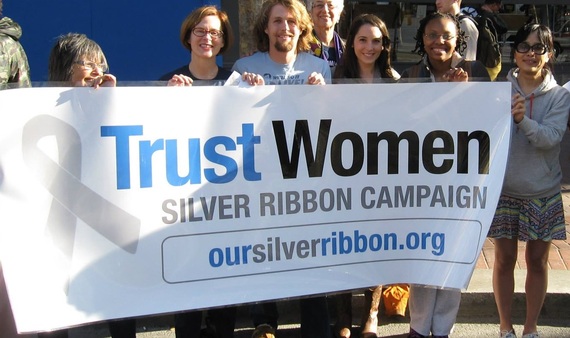The Senate reconvenes on Monday, April 13, 2015, facing a vote on H.R. 2. It's a shining opportunity to reclaim leadership for covering abortion care for all women regardless of their income, source of insurance, or where they live.
An overwhelming bipartisan majority in the House agreed on H.R. 2 just before the March recess. It offers a compromise on the long unpopular but seemingly intractable Medicare formula for paying doctors. Delay in the Senate risks passing a deadline that threatens a 20 percent pay cut for the MDs! (Sound familiar?)
Well, yes, H.R. 2 also includes the Hyde amendment, banning federal funds for abortion. But this rule has "been in appropriations for decades. It's pretty much chiseled in stone," according to the NY Times' Gail Collins. The House "pro-choice" caucus declined to marshal opposition to including it in H.R. 2, which also promises to extend funding for children's health insurance and community health centers. (A shining exception: Rep. Jan Schakowski, who attributed her "No" vote in part to the Hyde language.)
But it's increasingly clear that sticking with the status quo is an open door to retreat. In March, the abortion funding restriction showed up in a Senate bill intended to protect the victims of sex-trade trafficking. This past week, Indiana recovered from national revulsion against an anti-LGBT law by handing down a 20-year jail sentence to Purvi Patel claiming that her miscarriage constituted "feticide." We are way beyond irony here.
The primary victims of the Hyde restrictions are low-income women and their families, who are five times more likely to experience unintended pregnancies and childbirths, and are increasingly caught in the vise of state and federal laws constraining access to safe, legal abortions, as well as reduced social and financial support for families. Leaders and advocates for vulnerable communities will be stronger for unifying our shared interests in children's health insurance, community health centers, fair Medicare reimbursement policies, and abortion rights and reproductive justice.
It is long past time for our leaders to make the positive case for equitable coverage. As Sen. Dianne Feinstein (D-Calif.) has said, this is "one battle that we can win... I see it as standing up for principle. And you know principle doesn't know minority and majority; principle is deeply held."

